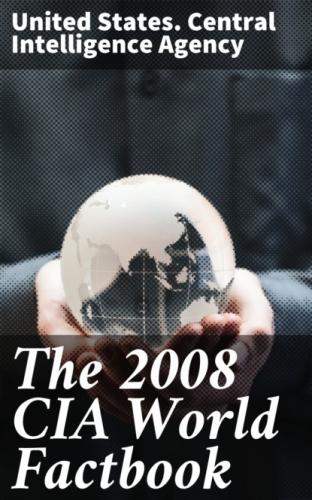Revolutionary Unity or URNG [Hector NUILA]; Guatemalan Republican
Front or FRG [Efrain RIOS Montt]; National Advancement Party or PAN
[Ruben Dario MORALES]; National Unity for Hope or UNE [Alvaro COLOM
Caballeros]; Patriot Party or PP [Ret. Gen. Otto PEREZ Molina];
Unionista Party or PU [Fritz GARCIA]; Unity of National Change or
UCN [Sidney SHAW]
Political pressure groups and leaders:
Agrarian Owners Group or UNAGRO; Alliance Against Impunity or AAI;
Committee for Campesino Unity or CUC; Coordinating Committee of
Agricultural, Commercial, Industrial, and Financial Associations or
CACIF; Mutual Support Group or GAM
International organization participation:
BCIE, CACM, FAO, G-24, G-77, IADB, IAEA, IBRD, ICAO, ICC, ICRM, IDA,
IFAD, IFC, IFRCS, IHO, ILO, IMF, IMO, Interpol, IOC, IOM, IPU, ISO
(correspondent), ITSO, ITU, ITUC, LAES, LAIA (observer), MIGA,
MINUSTAH, MONUC, NAM, OAS, OPANAL, OPCW, PCA, RG, UN, UNCTAD,
UNESCO, UNIDO, UNIFIL, Union Latina, UNMIS, UNOCI, UNWTO, UPU, WCL,
WCO, WFTU, WHO, WIPO, WMO, WTO
Diplomatic representation in the US:
chief of mission: Ambassador Francisco VILLAGRAN de Leon chancery: 2220 R Street NW, Washington, DC 20008 telephone: [1] (202) 745–4952 FAX: [1] (202) 745–1908 consulate(s) general: Chicago, Denver, Houston, Los Angeles, Miami, New York, Providence, San Francisco
Diplomatic representation from the US:
chief of mission: Ambassador Stephen G. MCFARLAND embassy: 7–01 Avenida Reforma, Zone 10, Guatemala City mailing address: APO AA 34024 telephone: [502] 2326–4000 FAX: [502] 2326–4654
Flag description:
three equal vertical bands of light blue (hoist side), white, and light blue with the coat of arms centered in the white band; the coat of arms includes a green and red quetzal (the national bird) and a scroll bearing the inscription LIBERTAD 15 DE SEPTIEMBRE DE 1821 (the original date of independence from Spain) all superimposed on a pair of crossed rifles and a pair of crossed swords and framed by a wreath
Economy
Guatemala
Economy - overview:
Guatemala is the most populous of the Central American countries with a GDP per capita roughly one-half that of Argentina, Brazil, and Chile. The agricultural sector accounts for about one-tenth of GDP, two-fifths of exports, and half of the labor force. Coffee, sugar, and bananas are the main products, with sugar exports benefiting from increased global demand for ethanol. The 1996 signing of peace accords, which ended 36 years of civil war, removed a major obstacle to foreign investment, and Guatemala since then has pursued important reforms and macroeconomic stabilization. On 1 July 2006, the Central American Free Trade Agreement (CAFTA) entered into force between the US and Guatemala and has since spurred increased investment in the export sector. The distribution of income remains highly unequal with about 56% of the population below the poverty line. Other ongoing challenges include increasing government revenues, negotiating further assistance from international donors, upgrading both government and private financial operations, curtailing drug trafficking and rampant crime, and narrowing the trade deficit. Given Guatemala's large expatriate community in the United States, it is the top remittance recipient in Central America, with inflows serving as a primary source of foreign income equivalent to nearly two-thirds of exports.
GDP (purchasing power parity):
$64.76 billion (2007 est.)
GDP (official exchange rate):
$33.69 billion (2007 est.)
GDP - real growth rate:
5.7% (2007 est.)
GDP - per capita (PPP):
$5,100 (2007 est.)
GDP - composition by sector:
agriculture: 13.3% industry: 25.8% services: 60.9% (2007 est.)
Labor force:
3.958 million (2007 est.)
Labor force - by occupation:
agriculture: 50% industry: 15% services: 35% (1999 est.)
Unemployment rate:
3.2% (2005 est.)
Population below poverty line:
56.2% (2004 est.)
Household income or consumption by percentage share:
lowest 10%: 0.9% highest 10%: 43.4% (2002)
Distribution of family income - Gini index:
55.1 (2007)
Investment (gross fixed):
17.1% of GDP (2007 est.)
Budget:
revenues: $4.38 billion expenditures: $4.872 billion (2007 est.)
Fiscal year:
calendar year
Public debt:
20.9% of GDP (2007 est.)
Inflation rate (consumer prices):
6.8% (2007 est.)
Central bank discount rate:
NA (31 December 2007)
Commercial bank prime lending rate:
12.84% (31 December 2007)
Stock of money:
$6.227 billion (31 December 2007)
Stock of quasi money:
$8.928 billion (31 December 2007)
Stock of domestic credit:
$13.96 billion (31 December 2007)
Agriculture - products:
sugarcane, corn, bananas, coffee, beans, cardamom; cattle, sheep, pigs, chickens
Industries:
sugar, textiles and clothing, furniture, chemicals, petroleum, metals, rubber, tourism
Industrial production growth rate:
4.8% (2007 est.)
Electricity - production:
7.643 billion kWh (2006 est.)
Electricity - consumption:
6.617 billion kWh (2006 est.)
Electricity - exports:
131.9 million kWh (2007 est.)
Electricity - imports:
8.11 million kWh (2007 est.)
Electricity - production by source:
fossil fuel: 51.9% hydro: 35.2% nuclear: 0% other: 12.9% (2001)
Oil - production:
15,820 bbl/day (2007 est.)
Oil - consumption:
74,230 bbl/day (2006 est.)
Oil - exports:
15,560 bbl/day (2006 est.)
Oil - imports:
72,960 bbl/day (2006 est.)
Oil - proved
